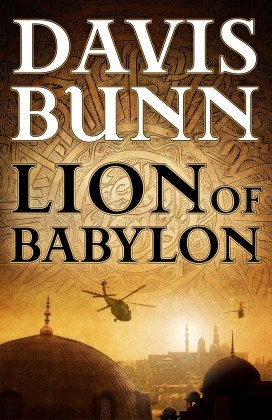On Writing Fiction: The More Complex the Issues, The Simpler the Structure Must Be

Nick Harrison, Senior Editor at Harvest House Publishers, asks:
How does the final draft of the book differ (if it does differ) from your original vision for the book when you began it?
My Response:
I am going to write a longer answer than you would probably prefer, Nick. But this to me is not a simple question.
 If I take my current work as an example: Lion of Babylon is the first time I have ever based a story upon my experiences of working and living in the Middle East. I wrote the outline over a six month period, coming back to it time and again between other projects.
If I take my current work as an example: Lion of Babylon is the first time I have ever based a story upon my experiences of working and living in the Middle East. I wrote the outline over a six month period, coming back to it time and again between other projects.
Then I just sat on it for months, knowing I needed something more, but not sure what it was. Finally I showed it to Carol Johnson and Dave Horton at Bethany House. It was only when I received their feedback that I felt the book begin to genuinely solidify.
Focus on my weakest areas
Generally when preparing the outline, I focus upon my weakest areas. In this case, my desire was to have half the story told from the POV of an Arab Christian.
What does it mean to live as a member of a minority faith?
What are the current circumstances faced by such a person and their family?
In order for such issues to NOT get in the way of the overall story, I need to grow utterly comfortable with this man, his world, and his 'skin', at the outline phase.
Goal of the first draft
In the first draft, the aim is balance. All the various elements of the story need to be molded into a smooth orchestral arrangement. With this story, my aim was to reveal a deep complexity in a simple fashion, much like what I did with The Great Divide.
The more complex and emotional the issues, the simpler the structure needs to be. I have always found this to be a vital truth of good storytelling. Like in 'Divide', I wanted to go beyond the basic components of a good thriller, and tell a story with heart.
The Crucial Change Point
In general, the crucial change between outline and first draft is the climax. I have never had my first vision of the climax actually become the book's culmination. Lion of Babylon is no exception. As usual, what I envisioned as the climax actually became one of the crucial moments LEADING to the climax. I find I like this uncertainty, this unexpectedness. If I don't know, the reader normally can't anticipate.
At the same time, I need to have some sense of the ultimate goal. Where is the story headed? Having a climax in mind is crucial. Having it change is part of the fun.









